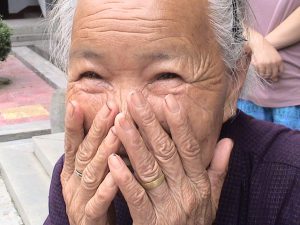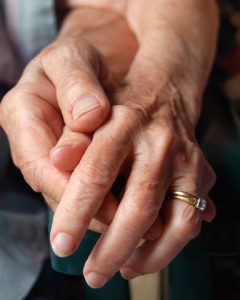‘Certificate in Community Gerontological Nursing’ launched
The first course dedicated to community gerontological nursing in Singapore.
 With Singapore’s rapidly ageing population and the Government’s impetus to promote ageing-in-place, it becomes imperative to build capacity in the aged-care sector, and especially in community-based practice. Skilled professionals are a critical resource for the development of eldercare services to support community-dwelling older persons to enhance their health, prevent disease, avoid repeated hospitalisation and early institutionalisation, and optimise well-being at any point of their lives.
With Singapore’s rapidly ageing population and the Government’s impetus to promote ageing-in-place, it becomes imperative to build capacity in the aged-care sector, and especially in community-based practice. Skilled professionals are a critical resource for the development of eldercare services to support community-dwelling older persons to enhance their health, prevent disease, avoid repeated hospitalisation and early institutionalisation, and optimise well-being at any point of their lives.
First of its kind in Singapore
The Hua Mei Training Academy’s ‘Certificate in Community Gerontological Nursing’ is intended to fill this need. This course is intended not just for nurses working in the various settings in the community – such as in polyclinics and other primary care settings, day centres and care management services – but also nurses in institutions, such as care coordinators and ward nurses in acute care and community hospitals. They are the ones responsible for discharge planning for older patients with complex needs to ensure their smooth transition back to their homes and community.
The first of its kind in Singapore, it brings together two different areas of specialisation – gerontological nursing and community nursing.
It is also unique for being a course developed and trained by practitioners for practitioners, and is the first of a series of ‘signature courses’ to be launched by the Hua Mei Training Academy. The training curricula for those will be drawn from the two decades of experience honed at the Hua Mei Centre for Successful Ageing, which supports elders in the community through pioneering medical and psycho-social services delivered with a person-centred, multi-disciplinary approach. The course will commence in August 2012, and costs S$4,500 (individual modules of training are available for S$500 each). The Agency for Integrated Care (AIC) Learning Institute is offering course fee subsidies to participants from eligible organisations in the intermediate and long-term care sector but not for the modular attendance.
Both Hua Mei operations are initiatives of the Tsao Foundation. The ‘signature courses’ leverage the organisation’s ground experience in community-based services to strengthen its capacity-building role so as to meet the growing demand in the aged care sector, enhance professional development, and better serve the needs of older persons.
Ageing-in-place
Dr Mary Ann Tsao, president of the Tsao Foundation, said, “With Singapore’s rapid ageing over the next two decades, keeping our population healthy and supporting our elders so they can live securely and die peacefully in their own homes and community will be critically important in order to reduce the ‘burden’ of ageing and enjoy our hard earned longevity.
 “In this regard, community gerontological nurses have a demanding but leading role to play in promoting the health, self-mastery and well-being of older people.”
“In this regard, community gerontological nurses have a demanding but leading role to play in promoting the health, self-mastery and well-being of older people.”
The Certificate in Community Gerontological Nursing is accredited by the Singapore Nursing Board, and application is open to practicing, state-registered nurses with at least two years’ relevant experience. The complete curriculum is a 280-hour, nine-module course with an assessment component. An enhanced feature is the six-month group clinical supervision provided to participants who have attended the full programme, to further support their knowledge application.
Said Senior Nursing Officer Fong Yoke Hiong, who led the curriculum development for the course and has been a community nurse with the Hua Mei Mobile Clinic for more than 18 years, “This course trains its participants in the skills and knowledge essential for the role of a community gerontological nurse. The curriculum is developed to enable independence in critical thinking and skill application. The teaching methodology is mostly experiential and interactive, with case studies, role play and field visits supporting skill acquisition, and the development of a care-management, person-centred perspective in nursing.”
(** PHOTO CREDIT: China Shots2, mfb1982, stock.chng; hands, juliaf, stock.chng)

0 Comments